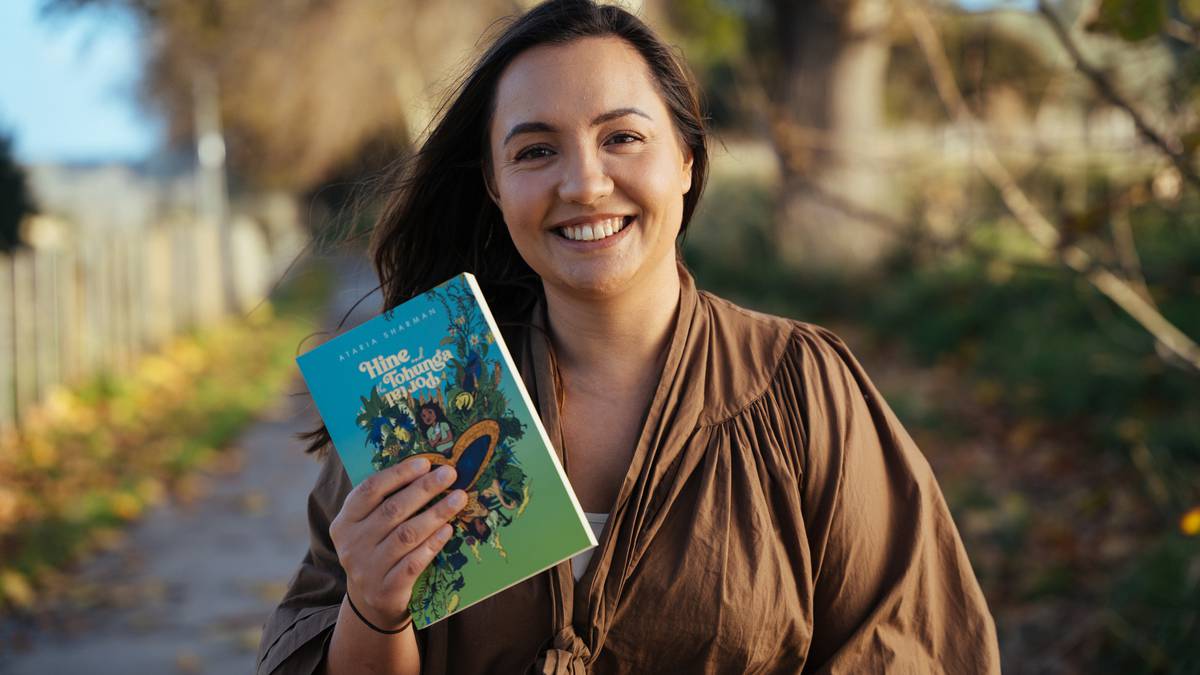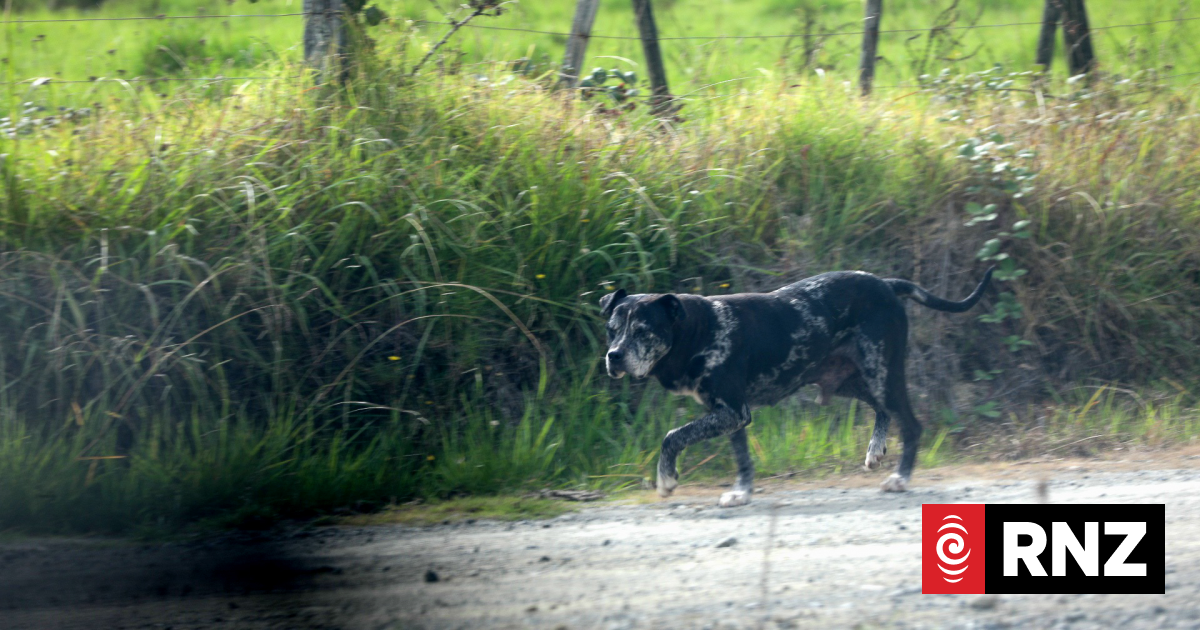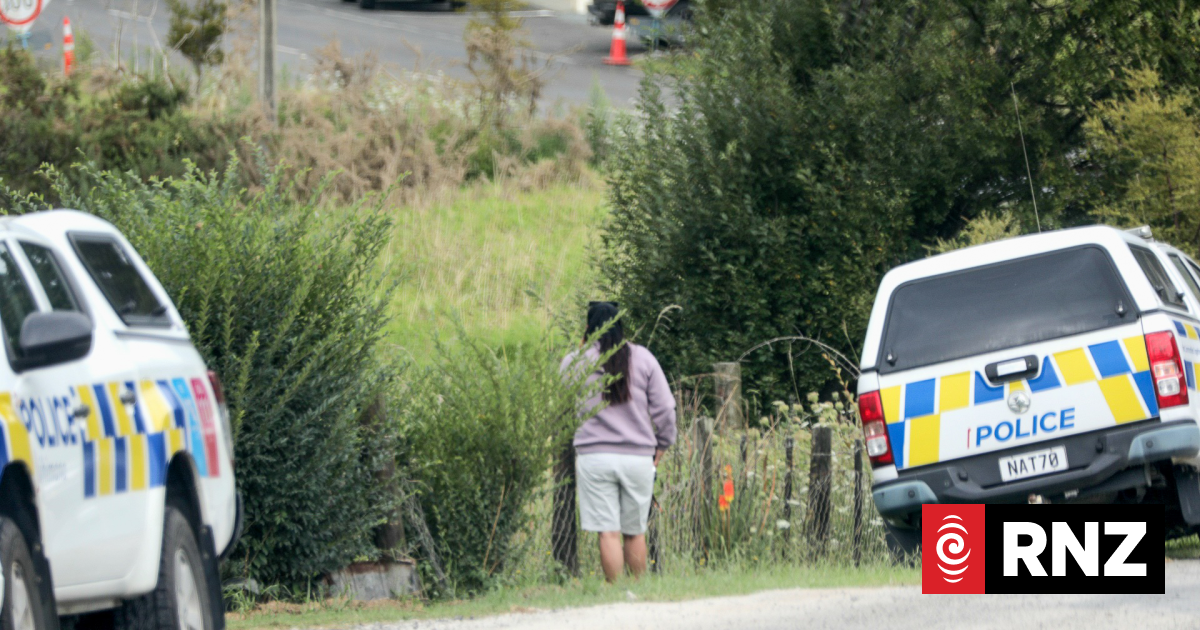Ataria Sharman will soon speak to Chanel Clarke about her first novel and why they’ve both recently made the move to the north at Upsurge Festival’s Conversations. Photo / Supplied
Over the past five years, Northland has been the country’s fastest-growing region, with thousands moving north.
Among them are writers Ataria Sharman and curator Chanel Clarke, who’ll soon share a frank kōrero about the former’s first novel and her reasons for coming home at the Upsurge Bay of Islands Arts Festival.
“Although I’m not from here, I am of here,” Clarke said during a candid discussion about the joys and pressures unique to this time and place.
Clarke (Ngāpuhi, Te Rarawa, Waikato, Ngāti Porou) left Auckland last year to become Te Rau Aroha curator at Waitangi Treaty Grounds.
“Ōhaewai is home for me, but I’ve never lived here – which is a common experience,” Clarke said.
“My parents were the generation that moved to the cities, seduced by the bright lights and the jobs.
“It was a dream to come home, and the opportunity to work at Waitangi has enabled that.
“But it was nerve-racking to do it, to leave everything I knew behind.”
She soon found great comfort in her surroundings.
“Literally being in the landscape is quite affirming in a lot of ways. It makes the missing things worthwhile,” Clarke said.
“I have to remember to look up,” she laughed.
Clarke spoke of her 20-year-old daughter’s generation, the first to have regained te reo, and the challenges inherent in the honour.
“Speaking the reo comes with a whole new lot of expectations to represent the family,” she said.
/cloudfront-ap-southeast-2.images.arcpublishing.com/nzme/3VXV42PE4LRQS2FCAP2WI5LB7U.jpg)
“Our youth have this amazing privilege of having learnt their language, but they also have to navigate their way through the trauma of their parents and grandparents’ generations.
“And make those stands – yet again. That’s the burden they carry, which a lot of people don’t know or understand.
“Young people are exceptional. And they need our support.”
Clarke said she was “blown away” by the brave conversations young Māori women start, often ones no one else dared to.
Ataria Sharman (Ngāpuhi, Tapuikia), 32, is one such exceptional young woman.
Her first novel Hine and the Tohunga Portal weaves te reo Māori and English together and has seen her nominated for the NZSA Best First Book Award at the 2022 New Zealand Book Awards for Children and Young Adults.
“I’ve really enjoyed the types of words she chose to include,” Clarke said of Sharman’s writing.
“She’s used a variety of different words, in conversational style, so you can really imagine those conversations easily.”
Clarke said Sharman had been asked why the book didn’t contain a glossary.
“If you need to find out what a word means, there are many avenues for doing that,” she said.
“Why can’t we just appreciate and enjoy it for what it is?”
When asked about such requests to justify her choice, Sharman graciously described them as “frustrating”, and pointed out that “we’d never ask an English author why they didn’t include a Māori glossary.
“We think of English as so dominant, but perhaps we need to rethink that.”
“Many people speak a lot of different languages now,” Sharman said.
“If we’re going to acquiesce to that request, we’d need to think about doing the same for every language, wouldn’t we?”
Sharman said although she had learned a lot at uni about colonisation, institutional racism and language revitalisation – which informed some of her decisions and encouraged her to push the boundaries – she said she’d written her book instinctively.
“It just happened naturally during the writing process,” Sharman said.
“It felt intuitively better to use a particular Māori word, so I did.
“And a few reviews of the book have touched on that as a positive.
“It’s woven in so people can figure out what a word means, and understand, based on the context.”
Sharman gave the example of ‘she kicked the rock with her hū’.
Indeed, it was not a stretch to deduce that hū meant shoe. But a meaningful bit of effort was required from the reader.
“If you’re not willing to take 30 seconds to look a word up, maybe that piece of work someone spent years writing isn’t for you,” she said.
“This kind of mahi is my form of activism.
“And whatever you do, whether it’s how you write, sing waiata at home, or something else, it all matters.”
While Sharman whakapapas to Matauri Bay, she has spent most of her life in Wellington, and made the move to Hikurangi, Whangārei, just four years ago.
“I wanted to be closer to my own iwi, but I didn’t know how that would happen,” Sharman said.
“My partner is from here, so he gave me a reason and the confidence to make the move.
“And I love it up here; it feels happening. There’s some really awesome kaupapa going on.”
Speaking about the revitalisation of te reo, Sharman said “it feels like we’re really on the edge of something great”.
“We’re getting more and more positive momentum,” she said.
“A lot of younger people I know have gone through kura kaupapa or kōhanga.
“A few generations from now, we might be back to where we were before colonisation.”
Sharman’s hopes for her upcoming talk with Clarke pointed to her willingness to support others on their journey.
“I hope everyone who comes to the talk takes away an experience of the diverse backgrounds and lives of two wāhine Māori,” Sharman said.
“And an understanding of why they may or may not want to explore reconnecting to their Māori heritage, and the places where their tīpuna once lived.”
Te Hokinga Mai (Returning Home) is one of six conversations with writers connected to Northland on the bill at the Upsurge Bay of Islands Arts Festival, on from September 24-25.
Also featured will be Dame Fiona Kidman and Charlotte Grimshawe.
To find out more, visit: www.upsurgefestival.co.nz.




